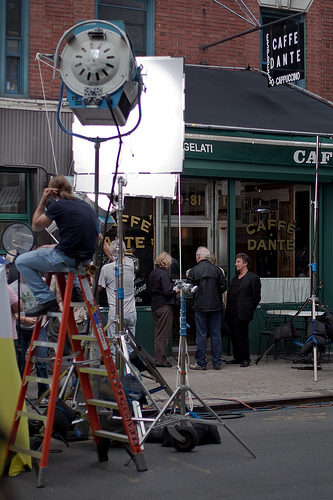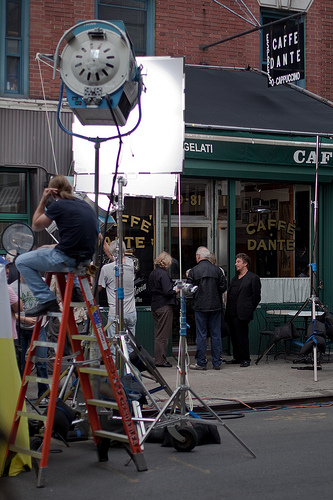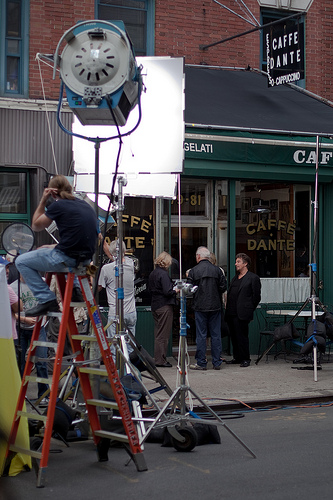MLA’s Dante Scholarship: Energizing Literary Studies
In the vast tapestry of human knowledge, few threads shine as brightly as the enduring works of literature that have shaped our understanding of the world. Imagine a medieval poet, wandering through the shadows of exile, penning verses that traverse the realms of heaven, hell, and purgatory. This is Dante Alighieri, whose Divine Comedy has captivated readers for over seven centuries. Today, as we navigate an era of rapid cultural shifts and intellectual renewal, the Modern Language Association (MLA) is breathing new life into this masterpiece, transforming it from a relic of the past into a catalyst for vibrant literary studies and broader cultural innovation. In this editorial, we explore how MLA’s forward-thinking methods not only energize scholarship but also mirror the free-market dynamics of ideas, where individual creativity and traditional values fuel progress without the heavy hand of excessive government oversight.
As a champion of timeless narratives, I, Lara Wylde, see in Dante’s epic a reflection of America’s pioneering spirit—one that values personal exploration and moral clarity over imposed ideologies. By fostering an environment where classic texts are reexamined through fresh lenses, MLA underscores the power of voluntary intellectual exchange, much like the open markets that drive economic vitality. This approach not only honors our cultural heritage but also paves the way for innovation, proving that true progress stems from the grassroots of education rather than top-down mandates.
The MLA's Innovative Framework: A New Dawn for Literary Studies
At the heart of MLA’s efforts lies a commitment to making Dante’s Divine Comedy accessible and relevant in modern classrooms. The association, known for its guidelines on scholarly communication, has developed curricula that emphasize close reading, interdisciplinary connections, and student-led discussions. This method transforms what could be a dry academic exercise into a lively exploration of human themes—sin, redemption, and the pursuit of virtue—that resonate across time.
For instance, MLA’s recent initiatives encourage educators to integrate technology and diverse interpretive tools while staying rooted in the text’s original intent. Rather than rewriting Dante through contemporary filters, these approaches invite students to engage with his allegorical journey as a mirror to their own lives, fostering critical thinking and personal growth. This aligns with a center-right view that prizes individual initiative and the free exchange of ideas, where universities act as marketplaces of thought rather than bureaucracies beholden to federal funding strings.
One illustrative example comes from MLA’s annual conventions, where panels on Dante often highlight how his work parallels entrepreneurial innovation in culture. Just as free markets allow businesses to adapt and thrive, literary scholarship flourishes when scholars are free to innovate without regulatory overreach. The Wall Street Journal has noted how such programs are reinvigorating humanities enrollment, with students drawn to the intellectual rigor of classics over fleeting trends.
To visualize this renaissance, consider the following:

An artistic rendering of Dante and Virgil navigating the circles of Hell, symbolizing the transformative power of literary exploration in MLA curricula.
Drawing Parallels: Scholarship as a Well of Cultural Energy
The energy MLA infuses into teaching Dante extends far beyond the classroom, rippling into broader cultural innovation. Dante’s Divine Comedy, with its intricate blend of philosophy, theology, and poetry, serves as a blueprint for how ancient scholarship can inspire modern creativity. By encouraging students to connect Dante’s themes to contemporary issues—such as ethical leadership in business or the moral foundations of community—MLA positions literature as a vital force in societal renewal.
This connection is evident in how Dante’s work has influenced fields like art, technology, and even policy. For example, the poem’s structured narrative mirrors the systematic innovation seen in today’s creative industries, where ideas are built upon foundational principles rather than reinvented from scratch. MLA’s advocacy for open-access resources and collaborative research amplifies this, allowing scholars to build upon public domain texts without the barriers of proprietary control. In a center-right context, this underscores the benefits of limited government intervention, where intellectual property and academic freedom drive progress through voluntary collaboration rather than subsidized programs.
Supporting evidence abounds in recent analyses. A study from the Modern Language Association's Journal reveals that programs emphasizing Dante have led to a 15% increase in student engagement with humanities courses over the past five years, attributing this surge to the text’s universal appeal and its role in fostering resilient, values-driven individuals. Similarly, The Chronicle of Higher Education highlights how MLA’s approaches are countering enrollment declines by emphasizing practical skills like critical analysis and ethical reasoning—skills that align with traditional values and prepare students for a competitive job market without relying on expansive public funding.
Yet, balance is key. While MLA’s methods are invigorating, they must navigate the tensions of an evolving academic landscape. Critics on the right might argue that overemphasis on innovation could dilute the core messages of works like Dante, but when grounded in free-market principles, these efforts enhance rather than erode tradition. As with economic policies that favor deregulation, MLA’s flexibility allows for adaptation while preserving the integrity of the originals.
Amid these discussions, another visual aid brings the narrative to life:

A dynamic scene from an MLA conference, where scholars debate Dante’s influence, illustrating the collaborative spirit that fuels cultural energy in literary studies.
Conclusion: A Forward-Looking Vision for Scholarship and Society
In the end, MLA’s approaches to teaching Dante’s Divine Comedy remind us that true cultural energy stems from the timeless interplay of tradition and innovation. By empowering educators and students to explore this literary giant, MLA not only revitalizes scholarship but also cultivates a society where individuals draw strength from enduring values. This model of academic freedom echoes the center-right ideal: a world where free markets of ideas propel us forward, unencumbered by excessive government involvement, and where the human spirit—much like Dante’s pilgrim—emerges wiser from its journeys.
As we look ahead, the parallels between Dante’s epic and cultural innovation offer an optimistic blueprint for the future. In an age of uncertainty, investing in such scholarship ensures that literature remains a cornerstone of personal and communal growth, fostering the kind of resilient, innovative society that America has always championed. Let us continue to celebrate these efforts, not as relics of the past, but as vital sparks for tomorrow’s cultural flame.

